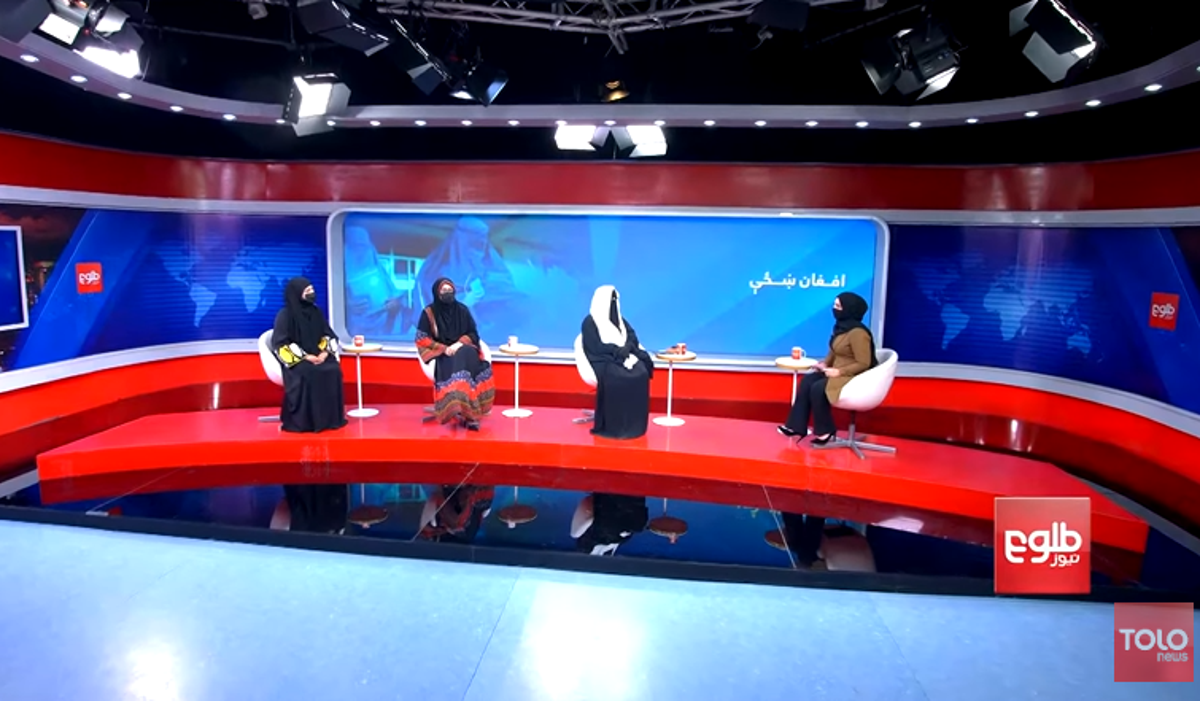Afghanistan news network broadcasts rare all-women panel discussion on Women’s Day

An Afghanistan news network held a rare, nearly 50-minute broadcast with an all-female panel on its studio on International Women’s Day.
The women panelists, who wore face masks, spoke about the position of women in Islam. This is the first time such a news discussion took place in the country after the hardline Taliban took control.
Women have been forced out of Afghanistan’s workforce in the last year and denied education after the Taliban reneged on its promise to have a more moderate rule than last time.
An order prevented them from being working officials, leaving many female journalists to quit their profession or work off air, while girl and women students have been denied an education.
A day after International Women’s Day, the UN mission in Afghanistan said the country was “the most repressive in the world regarding women’s rights”.
Journalist Asma Khogyani, present on the panel, said: "A woman has rights from an Islamic point of view... it is her right to be able to work, to be educated.”
Her fellow panelist, Zakira Nabil, said women would continue to find ways to learn and work.
“Whether you want it or not, women exist in this society... if it’s not possible to get an education at school, she will learn knowledge at home,” the former university professor told the panel.
The panel on Wednesday was hosted by Tolo news presenter Sonia Niazi, who spoke about the problems and demands of Afghan women under the present circumstances.
The news discussion was received well on social media as several praised Tolo for the broadcast.
In May last year, the Taliban’s ministry for the prevention of vice and the promotion of virtue had ordered all women to appear with a face veil in public in addition to a full-length burqa, failing which the Taliban warned of punishment. The order also covered TV presenters and initially led to some protests.
The affected news anchors had argued that it would be difficult for them to keep their faces covered for hours and talk like that.
In response, the Taliban threatened penalising the managers and the guardians of female news presenters.
On Thursday, Roza Otunbayeva, special representative of the UN secretary-general and head of the UN political mission in Afghanistan, had harsh criticism for Afghanistan’s current administration.
“Afghanistan under the Taliban remains the most repressive country in the world regarding women’s rights,” she said in a statement.
Ms Otunbayeva also said, in separate remarks to the UN Security Council in New York, that “the Taliban claim to have united the country, but they have also severely divided it by gender”.
The Taliban has, in the past 18 months, restricted most girls and women from high school, colleges and universities to their homes. Women working in the NGO sector have also been barred from working under the Taliban, causing economic and social upheaval in the country.
More than 75 per cent of the female journalists have lost their jobs after the Taliban took over Afghanistan, following the fall of Kabul in 2021, a survey by Reporters Without Borders showed last year.
The UN has asked the Taliban to remove the restrictions on girls and women from studying and working.
After immense international backlash over the Taliban’s move to bar women from studying and working, the group said they respected women’s rights and claimed authorities were setting up panels to look at perceived issues to work to reopen schools.
